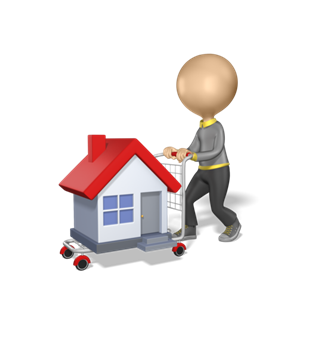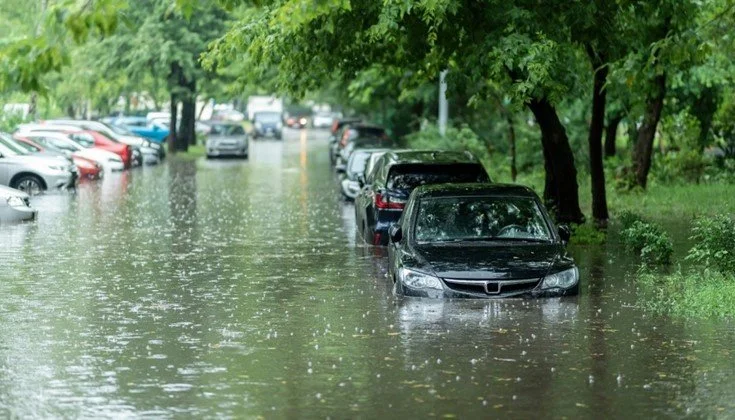Winter weather can cause roadways to be hazardous due to snow and ice, which means you need to prepare yourself and your vehicle for safety. If you have to drive in the snow, there are a number of things you can do to make it as safe as possible. And don't forget that before you drive anywhere, you need to have car insurance.
Read MoreThe U.S. housing market of recent years has been tumultuous, marked by high housing prices and interest rates, and low inventory. Most renters in urban areas have never owned a home, but more than half have considered buying one. Read on to see what is going on with the housing market.
Read MoreRoad salt is highly corrosive and can eat away at your car's exterior and undercarriage, leading to rust and long-term damage. Understanding the risks and taking proactive steps can save you from costly repairs down the line.
Read MoreIt’s going to take time to recover from the winter storm that affected a large part of the country and left hundreds of thousands without power. Scammers know severe weather may have shut off your electricity, heat, or water. And they might try to take advantage by sending messages that look like they’re from your utility company with links designed to steal your personal information.
Read MoreDamage can be devastating when large amounts of water enter your home. And when you have a flooded house, the repair process can be long and expensive. Cleaning and repairing a flooded house takes time. Learn the crucial steps and coping mechanisms that can help when repairing your flooded home.
Read More"Full coverage" is a term sometimes used to describe a car insurance policy that includes liability, comprehensive, and collision coverage, since it provides broad protection in a variety of situations.
Read MoreLife insurance can be confusing. By separating the facts from the myths, you can make sure you get the life insurance that's best for you and your loved ones.
Read MoreWind – and the damage it can cause – affects every homeowner. As a result, most home insurance policies include some sort of wind damage deductible. But the source of that wind can vary depending on where you live.
Read MoreWe often take it for granted, but a water heater plays a vital role in our daily comfort. However, like any hardworking appliance, water heaters age and can develop problems. Recognizing the signs and understanding basic maintenance can save you from unexpected cold surprises and costly repairs
Read MoreAuto liability insurance doesn't need to be confusing! We've broken down the different parts to help you understand why it's so important: What is it? What it covers and what it doesn’t cover. Is it required? If so, how much coverage do I need. And what is the difference between liability and full coverage.
Read MoreLife insurance works by allowing your beneficiaries to claim a financial payout after your death. Life insurance policies can be categorized into three main groups, based on how they work: Term Life Insurance, Permanent Life insurance, and Final Expense life insurance.
Read MoreYou can get your jewelry insured in one of two ways: through your property insurance or through a specialized jewelry insurer. If you go through your home, condo, or renters insurance, you should "schedule" your jewelry (also known as adding a rider to your policy) to make sure the piece is covered for its appraised value.
Read MoreInsurance companies may offer optional building code insurance coverage, also called "ordinance or law coverage," which can help cover the cost of bringing your home up to code if it's damaged by a covered peril. Local building codes may mandate upgrades or changes that weren't required when your home was originally built.
Read MoreOver the past few years, you may have noticed a sizeable increase in your homeowners insurance premiums. In reality, your policy's rates have likely increased due to several factors, and climate change is just one of them. However, climate change has played a significant role in how home insurance companies are calculating higher premium rates.
Read MoreYour car’s glass can break in any number of ways. The good news is that it’s often an easy fix if you have comprehensive coverage as part of your car insurance policy. If so, your insurance carrier will pay to repair your windshield or window for a covered glass loss, less your deductible.
Read MoreIf your car is damaged due to flooding or other water damage, you are likely wondering if your car insurance covers the loss. The answer: It depends. Basic liability-only insurance policies will not cover damage from losses such as these. In order to be protected, your policy generally needs to include comprehensive coverage.
Read MoreVacant homes often carry more risk than meets the eye. From burst pipes and property theft to liability and squatter intrusion, a home left unoccupied for an extended period is exposed to a unique set of hazards, many of which may not be covered by a standard homeowners’ insurance policy.
Read MoreJust like leases have lessors, liens have lienors, or lienholders. The lienholder is the creditor to whom the debtor owes money. In some more specific cases, the lienholder may have given the debtor a loan to buy something, a car or a house, and their lien applies to that purchase until the loan is paid off.
Read MoreSummer fun is about enjoying celebrations and time outdoors with activities like swimming, grilling out, going to parades and more. Fireworks are often the highlight of any summer event. But fireworks can cause accidents and injuries to children and adults alike. Let’s review the risks involved with using fireworks along with some important safety tips.
Read MoreReplacing and repairing your windows is an inevitable part of homeownership. Do you know when you can and can’t get your windows replaced or repaired under your home insurance policy? We have the answers for you, plus some home maintenance tips for preventing window damage and replacing windows in a timely manner.
Read More



















